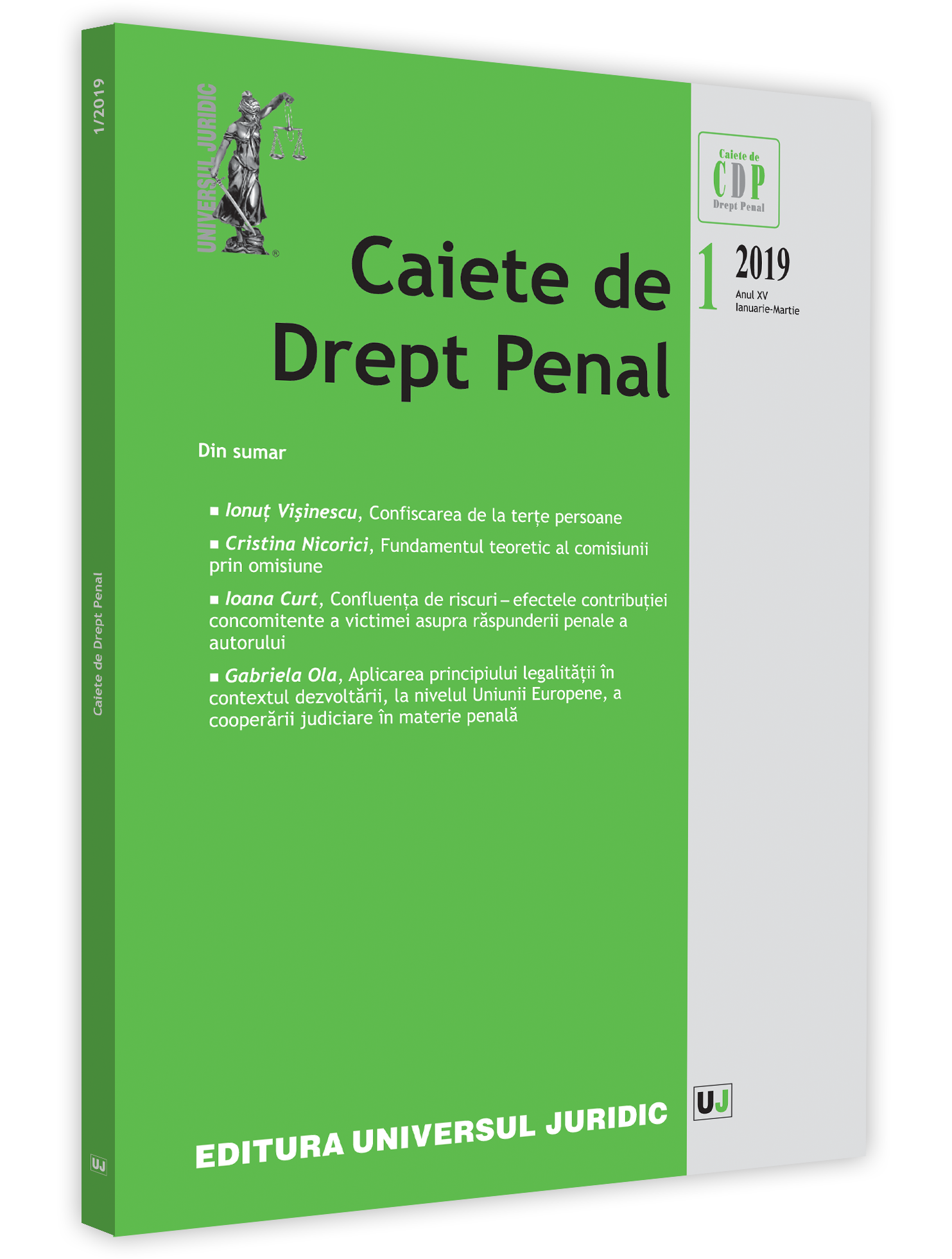Aplicarea principiului legalităţii în contextul dezvoltării, la nivelul Uniunii Europene, a cooperării judiciare în materie penală
The application of the legality principle in light of the development of judicial cooperation in criminal matters at European Union level
Author(s): Gabriela OlaSubject(s): Law, Constitution, Jurisprudence, Civil Law
Published by: Universul Juridic
Keywords: nullum crimen; nulla poena sine lege; judicial cooperation in criminal matters; double incrimination rule; positive conflicts of jurisdiction;
Summary/Abstract: The present article aims at analysing to what extent and in which manner the principle of legality may be infringed upon in the procedures of judicial cooperation in criminal matters, considering the continuous improvements made in this area at EU level. The author begins by analysing the connection between the double incrimination rule and the principle of legality so as to conclude whether the elimination of such requirement in the procedures of judicial cooperation between the member-states is contrary to the above mentioned principle. In the opinion of the author, the dual criminality is not rooted in the nullum crimen, nulla poena sine lege, as the rule has been devised because executing states did not find a reasonable account to cooperate in matters concerning a behaviour they have not criminalised – the commission of such an act was not considered a reason justified enough or a reasonable ground for the executing state to be willing to extradite a person; also, with the development of the aut dedere, aut judicare principle, executing states would not have been able to fulfil their obligation of judging an act which was not a crime under their national law. Therefore, the removal of the double criminality requirement should not be regarded as infringing on the principle of legality, which aims at protecting a person against an unjust criminal penalty. The author goes further to emphasize the real problem that the development of judicial cooperation in criminal matters has brought forth – the positive conflicts of jurisdiction. Although these are by no means new at international level, the improvements made at EU level in the area of judicial cooperation in criminal matters have made the problems caused by these conflicts more apparent: the development has led to an increase in the use of these procedures, and this has further led to an increasing number of persons finding themselves subjected to various legislations incriminating their behaviour in a very different manner. The article is trying to argue why and how these conflicts of jurisdiction may infringe upon the principle of legality (mainly the foreseeability dimension) and suggests a possible legal solution, which may be adopted at EU level.
Journal: Caiete de drept penal
- Issue Year: 2019
- Issue No: 01
- Page Range: 105-135
- Page Count: 31
- Language: Romanian
- Content File-PDF

